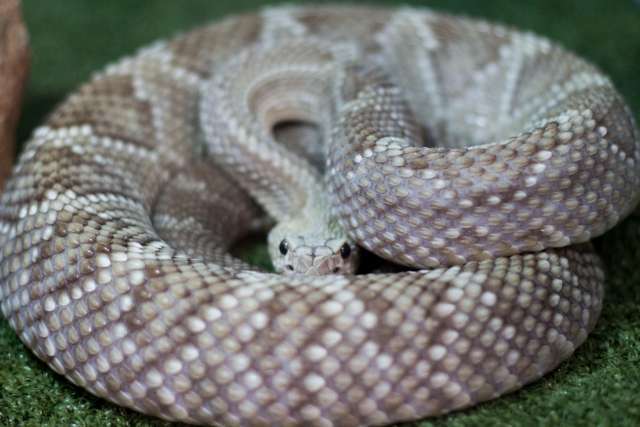You will read this article in 3 minutes

Although they happen throughout the year, accidents caused by venomous animals are more frequent during the rainy and hot season. They occur more frequently with snakes, scorpions, spiders, caterpillars, centipedes, bees and wasps, which shelter in both urban and rural areas, and can be found in the vicinity of houses, gardens and parks. Depending on the type of animal and the time required for proper medical care, some cases can lead to death.
Data from the State Department of Health of Minas Gerais (SES-MG) record, since 2018, the total number of accidents by venomous animals exceeds 243,000 cases, with an average of 48,750 notifications per year. In 2022, so far, 37,998 accidents have already been recorded. Cases involving scorpions represent more than 70% of the total of 243,716 occurrences registered between 2018 and October 2022.
Also between 2018 and 2022, 336 deaths were recorded in the state, involving the various types of venomous animals of the local fauna, of which 66 occurred in 2022. The main animals related to deaths that occurred in this period are scorpions (177 cases); snakes, such as jararaca, urutu-cruzeiro, rattlesnake, true coral, responsible for 71 deaths, and bees (56 cases).
The technical reference of Accidents by Venomous Animals of the Minas Gerais State Health Secretariat (SES-MG), Andréia Kelly Roberto Santos, explains that accidents by venomous animals are classified as mild, moderate and severe according to the type and intensity of signs and symptoms presented by the patient. “Most accidents caused by scorpions, spiders and caterpillars are classified as mild and do not require serum application”, he says.
“The serums indicated for the treatment of accidents involving venomous animals are specific for each type of animal causing the accident. However, for some accidents, such as those caused by bees, centipedes, wasps and other animals, there is still no serum”, completes the SES-MG technician.
Therefore, in case of accidents with any venomous animal, the advice is to seek medical attention as soon as possible at the nearest Basic Health Unit, for a correct assessment of the appropriate treatment for the patient, whether the administration of serum is indicated and which type recommended serum.
“These antivenom serums are only available in public health units so that all patients have the same opportunity of care. These units are commonly called serum therapy units and are present in some municipalities across the state, according to the service capacity of each one and the number of accidents that occur in the municipalities of each Regional Health Unit”, informs Andréia.
More information about the serotherapy units in the State is available at the link. http://vigilancia.saude.mg. gov.br/
Unlike venomous animals, venomous animals are those that have venom glands that communicate with teeth, stingers, or stings – which are the structures through which venom can be introduced into the body of individuals. Venom from venomous animals can cause, for example, reactions such as redness, local irritation, blisters and itching.
With the aim of raising awareness of preventive measures, the State Health Department of Minas Gerais (SES-MG) recommends a series of precautions that can reduce the presence of these animals and, consequently, the chances of accidents.
HOW TO PREVENT ACCIDENTS WITH VENOMY ANIMALS:
- Do not put your hands in burrows or holes in the earth, tree hollows, termite mounds, between spaces located in piles of firewood or between stones. If necessary, use a piece of wood, hoe or sickle;
- Do not touch hives and wasps. If these are in areas at risk of accidents, contact the competent local authority for removal;
- Inspect clothes, shoes, bath and face towels, bedding, floor cloths and rugs before using them;
- If you find a venomous animal, carefully walk away and avoid frightening or touching it, even if it appears dead, and look for the local health authority for guidance.
- Use Personal Protective Equipment (PPE) in risky places or situations;
- Look carefully at the workplace and the paths to be followed;
WHAT TO DO IN CASE OF AN ACCIDENT WITH A VENOMY ANIMAL:
- Seek medical attention immediately at the nearest health facility;
- Keep the casualty at rest, lying down and with the affected limb elevated in relation to the rest of the body, while waiting for help. The victim should avoid running or moving around on their own;
- If possible, and do not delay the victim's trip to the Health Unit, wash the accident site with soap and water only;
- Do not try to suck the venom out with your mouth or tie the injured limb. Do not apply any type of substance (such as alcohol, coffee grounds, herbs, earth, kerosene or urine) to the wound site. Such procedures have no effect on the poison and only increase the risk of infections;
- Try to pay attention to the color and size of the causing animal, as its characteristics can help in the diagnosis and treatment of the condition.
With information from the State Department of Health of Minas Gerais. Photo: Secretary of Health of Minas Gerais
